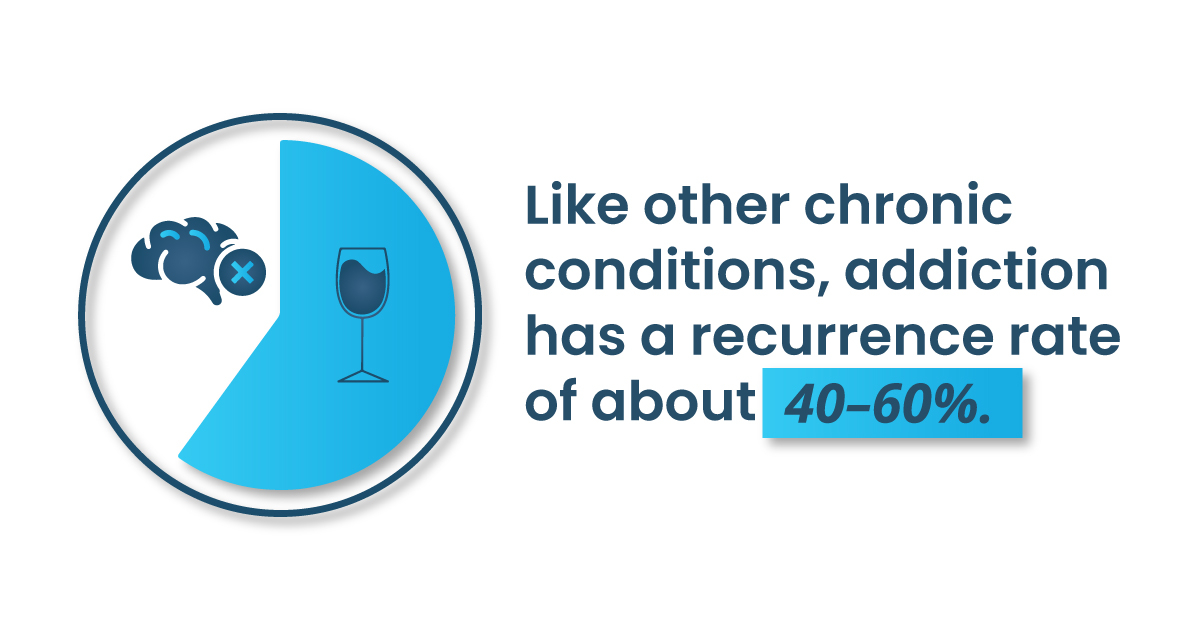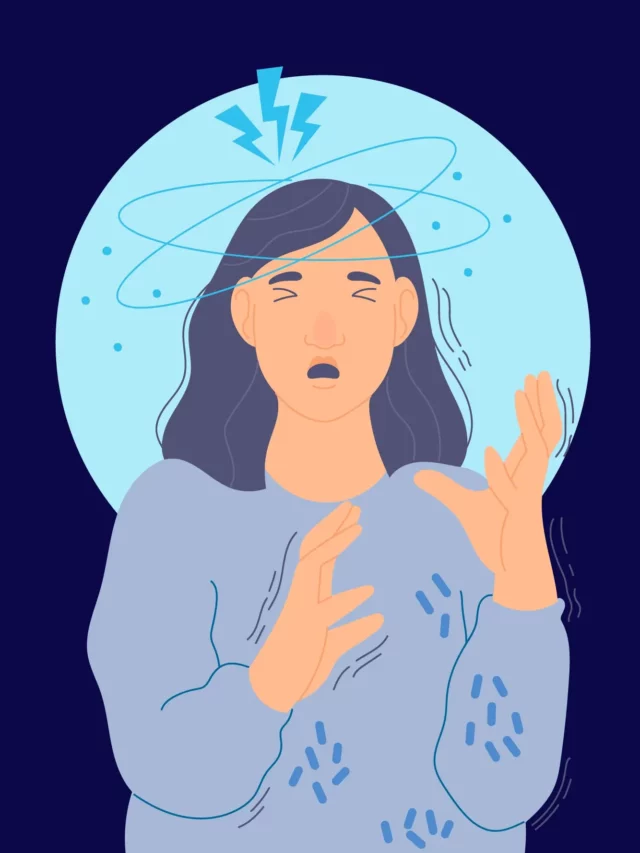You wake up one day only to realize that you have a problem affecting you and your loved ones. You have an addiction. Chances are you didn’t wish to become addicted when you began using the substance. You assumed you could quit anytime when you wanted to.
Now you want to break the addiction. Many individuals who encounter addiction are shocked and surprised at how challenging stopping can be.
This article examines some fundamental reasons why stopping an addiction is so challenging.
Key Takeaways
Choosing to overcome substance abuse is fulfilling and challenging. Addiction is a chronic, relapsing condition, yet it is also curable and manageable with tailored support.
- Many people develop addictions to different substances due to how these substances change certain brain functions.
- Relapse into addiction is seen as a distinct stage of recovery.
- Follow healthy habits to break the addiction.
Problems with substance and drug abuse can be treated. With various compassionate treatment options, The Haven Detox-New England is prepared to accommodate the needs of each patient.
Diagnosing Addiction
Addiction is the continued use of a substance or action despite the significant harm it causes because it is enjoyable.
The following four elements make up this description of addiction:
- Substances and behaviors are included in addiction (such as gambling and sex).
- Substantial harm results from addiction.
- Repeated participation in something harmful.
- Because it was or is pleasurable or worthwhile, the new habit persists.
Challenges when Stopping Addiction
A lot of people become addicted to various substances because they alter specific brain functions.
For example, numerous medications that affect how messages are received in the brain, called neurotransmission, may substantially change how your brain transmits information without that medication.
One neurotransmitter, dopamine, has increased activity with various substances. A drug-related increase in dopamine activity may have reinforcing effects and increase the likelihood that a person may use that drug compulsively.
The advantages of quitting addiction surpass any imagined benefits of ongoing substance use, although it can be difficult.
Quitting drugs or alcohol abuse can enhance your physical and mental well-being, lower your risk of developing chronic illnesses, help you mend broken relationships, and help you avoid other adverse effects at work or school.
You can regain your life and achieve your full potential by stopping using drugs, getting therapy for your substance abuse, and generally changing your lifestyle. The Haven Detox-New England is ready to help you do this.
Your addictive behavior is out of proportion with other aspects of your life, which causes conflict. These tensions persist even after deciding to stop using and go through the withdrawal process.
People with addictions frequently rely on their addiction to help them deal with stress. You stop using that coping method when you stop. This is why it’s crucial to have alternate coping mechanisms ideally entrenched before stopping.
You can get assistance with these problems from a therapist. You will probably encounter strong impulses to return to the addictive behavior “one more time” if you don’t have suitable coping mechanisms in place.
Ambivalence, or having conflicting desires to continue an addictive behavior and to stop, is a characteristic of addiction, even in the earlier phases of exploration.
This challenge is often felt in terms of wrong or right, especially sexual and illegal behaviors. Feelings of guilt are appropriate in others they are not.

Addiction is Chronic
Yes, there is a treatment for substance use and addiction problems. Addiction is not curable; it can be successfully and appropriately treated like other relapsing disorders like asthma or heart disease.
Like other chronic conditions, addiction has a recurrence rate of about 40–60%.
For instance, the relapse speed rate for high blood pressure or asthma is 50–70%. Relapse from addiction is viewed as a normal part of the healing process; it does not indicate that treatment was ineffective, but it may mean that your therapy plan or methods need to be revised.
Individualized treatment plans that are continually modified to meet your changing requirements and consider all your biological, psychological, and social factors are the key to effective treatment.
A continuum of treatment that begins the minute you enter detox and focuses on treating withdrawal and assisting you in achieving medical stability may be part of your strategy. After completing detox, you’ll be prepared to move on to more therapy.
Although treatment durations vary, research suggests longer (at least three months) therapy periods for the best possible therapeutic results. You will then transition to aftercare, which is intended to encourage lasting sobriety when a formal treatment program concludes.
Numerous elements should be considered for NIDA’s six pillars of addiction therapy to be as effective as possible.
These include beginning treatment as soon as possible, choosing a setting that is appropriate for your needs, using medication and behavioral therapies when necessary, handling other co-occurring mental disorders, and being continuously monitored to determine whether treatment needs to be modified.
How To Break an Addiction
Addiction is a disorder that can be treated, not a moral flaw, so if you are battling it, know it is treatable.
You deserve to be prosperous, free of worry or suffering, and to live in peace. The behavioral health experts at The Haven Detox-New England have some advice to help you overcome your addiction.
Admit
Accepting you have a problem with addiction is the hardest step in recovery. The brain is impacted by substance use disorders, leading it to search for justifications and justifications to continue using.
Having the fortitude to tackle your addiction and underlying reasons is demonstrated by your admission of a problem.
Reflect
Spend some time thinking about your values, how addiction has harmed you, and how abstinence will improve your life.
Keeping a daily notebook is the most effective technique for reflection. You can start an addiction recovery plan by keeping a journal to help you recognize trends, triggers, objectives, and motivators.
Seek Medical Advice
The residential treatment plan at the Haven Detox-New England offers a structured and peaceful environment to start alcohol and drug recovery.
Our staff is highly qualified in various treatment plans and options to provide an effective and individualized treatment program for every resident. The most healthy way is to seek medical advice from psychologists.
Residential Treatment Includes:
- Family Therapy
- Individual Therapy
- Group Therapy
- Peer Support Groups
- Detox and Medication Assisted Treatment (MAT)
Appreciate Sobriety
Sober living permits you to recover the positive factors of life. We address co-occurring disorders such as anxiety and depression that can influence addiction at the Haven Detox-New England.
By treating these factors actively, individuals in recovery encounter themselves enjoying themselves often.
Some benefits of sobriety include:
- Overall healthy connections with family and friends.
- A remarkable freedom
- Improved physical and mental health conditions
- Suitable financial stability
- More time to devote to their most important priorities
Determine Triggers
A trigger causes a passionate reaction based on the experience. A stimulus can usually induce a strong urge to use it again.
Common Triggers Include:
- Isolation
- Environmental factors
- Stress
- Grief or shame
- Illness
We can control them by creating healthy coping talents; once we pinpoint the triggers.
Change Your Environment
The likelihood of relapsing significantly increases when someone stops using alcohol or drugs but keeps up their old routines or habits. Avoid the people, places, and circumstances that set off your need to use to support your recovery.
Exercise Regularly
Working up a sweat while improving your general health and well-being will also cause endorphins to release naturally.
The benefits of regular exercise include:
- Reestablish normal brain activity.
- Reduce tension and stress.
- Reduce cravings.
- Sleep improvement.
- Boost self-esteem.
Learn from Mistakes
Feeling regretful or ashamed about your addiction, previous deeds, or destructive behavior is expected. Making amends to yourself and others will help you negotiate with these emotions as you recover.
Learn from your mistakes and give yourself a chance to modify in the future.
Treatment Options for Addiction
You should speak with a doctor, therapist, or another treatment specialist who can evaluate your case and offer treatment recommendations if you want to determine which degree of treatment is suitable for your needs.
A period of medically supervised detoxification is a common place for people to start their recovery process. They may go through additional rehabilitation, depending on their needs.
Sometimes, treatment begins at a somewhat high degree of care, but as the patient progresses via a continuum of care, treatment intensity gradually declines as recovery advances.
Several general types of care are available:
Inpatient Care
Given that it provides round-the-clock medical care, inpatient care is intended for people who need a high rank of supervision and monitoring.
It is advised for persons with a significant risk of experiencing psychological or physiological issues during withdrawal and offers extremely regimented therapy regimens.
This level of treatment is intended for people with an average risk of having medical and psychological issues. It provides medical monitoring and support around the clock.
Intensive Outpatient Care
Intensive outpatient care (IOP) is intended for those who can be at home but require significant care.
Within this level of care, partial hospitalization programs are the most time-consuming subtype, needing 20 hours of therapy per week, whereas intense outpatient only needs 9 hours.
This type of care may benefit those with stable living situations and a lower chance of physical and psychological issues.
Standard Outpatient Care
Outpatient care covers various rehabilitation initiatives like routine doctor visits, counseling, and therapy slots, which permit you to stay home while receiving treatment. This level of care supports and may entail going to therapy once or multiple times a week.
Frequently Asked Questions (FAQs)
How do you start breaking an addiction?
A person with drug addiction experiences neurological alterations that lead to compulsive drug usage. These modifications may eventually make it impossible to resist the urge to use drugs. In addition, drug addiction and misuse can damage the brain’s reward system.
You have an excellent chance of victory if you adopt the following measures:
- Fixed a quit date
- Change your environment
- Divert yourself
- Check your past attempts at quitting
- Build a support network
Because of the complex change, it is beneficial to have a complete guide when battling an addiction to drugs, behavior, or alcohol. Studies show that following these several steps can assist you in moving toward your goals.
Can you ever break an addiction?
Other mental and physical health conditions that need medical attention are frequent repercussions of untreated addiction. Addiction worsens over time, becoming crippling and perhaps fatal if ignored.
Addiction is treatable, even though addiction rehabilitation is complex. You can overcome the mental and physical difficulties you encounter to recover with the help of helpful services and the appropriate treatment strategy.
Trauma, difficulties with one’s mental health, and genetic predisposition are some of the leading causes of addiction. It’s crucial to remember that various factors cause addiction. Nobody can fully anticipate who will develop a drug addiction after abusing substances and who won’t.
What are the three rules of addiction?
The most crucial principle is that recovery cannot be attained simply by abstaining from drugs or alcohol. Recovery entails building a new life where abstaining from drugs and alcohol use is more straightforward.
Addiction’s impacts, in particular, can have a substantial adverse effect when it comes to addiction in the family; it’s said that the three rules of addiction are: don’t talk, don’t trust, and don’t feel.
The Haven Detox-New England is Your Safe Haven
Although giving up alcohol takes time, The Haven Detox-New England can help. The team at Haven Detox-New England is accommodating, sympathetic, and friendly. They provide detox services as well as comprehensive residential treatment programs.
You can get help, whether your aim is complete abstinence or reducing your intake.
Call a confidence counselor immediately at (844) 933-4145 to register for addiction treatment admissions.
